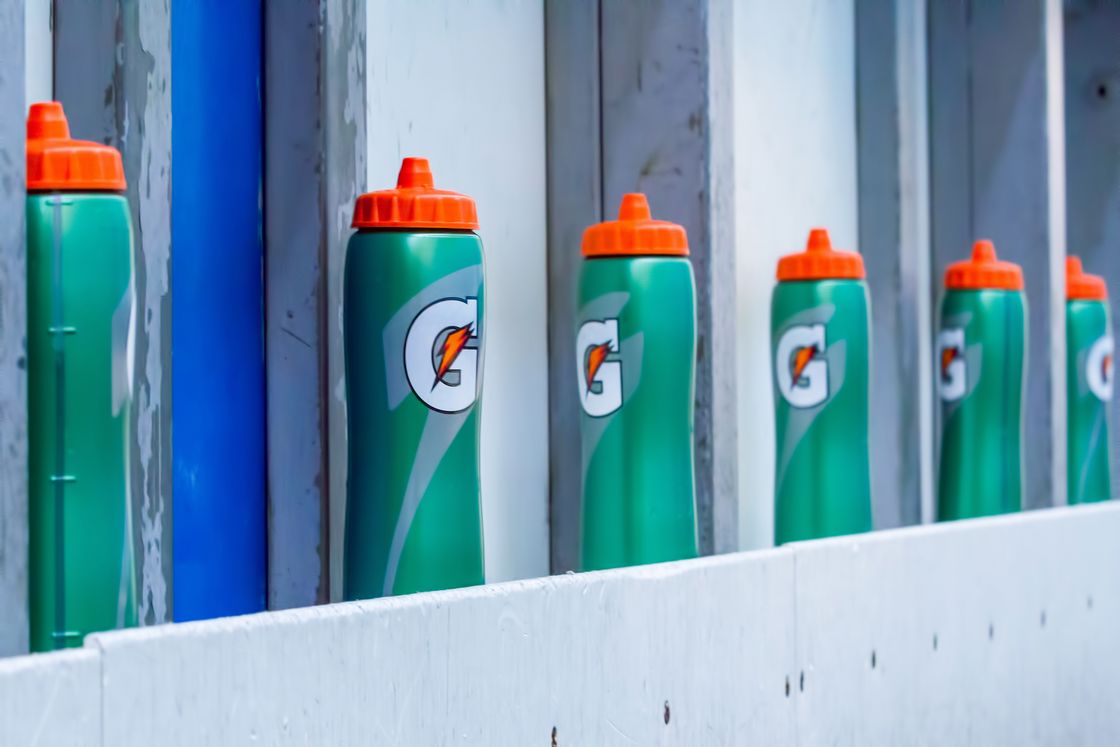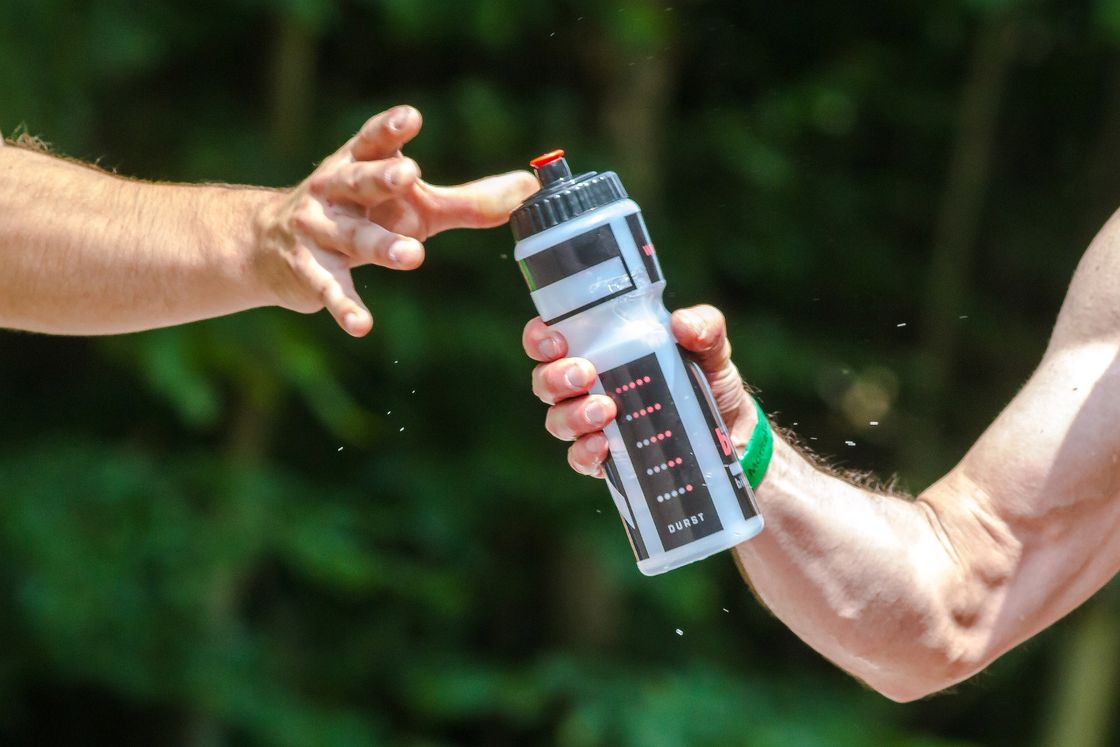Can you overdose on electrolyte drinks? It’s a question I’ve heard countless athletes ponder, a genuine concern rooted in the fear of electrolyte imbalance. After years of reading the research and firsthand observation, I’ll guide you towards understanding this crucial balance, ensuring your replenishment strategies are both safe and effective. Let’s dive into the science of electrolytes!
Can You Overdose on Electrolyte Drinks?
Yes, you can overdose on electrolyte drinks. It’s essential to recognize that while electrolyte drinks can aid in hydration and replenishment of lost minerals during intense physical activity, their excessive intake can cause adverse effects on the body, such as irregular heart rhythms, muscle weakness, and, in severe cases, even cardiac arrest.

Understanding the right balance is crucial. Generally, consuming electrolytes and sports drinks in moderation, especially during activities that induce heavy sweating, is considered safe and beneficial. However, consistently exceeding the recommended intake, which varies based on factors like age, sex, and health conditions, can lead to overdose.
Given these potential risks, let’s delve into why maintaining electrolyte balance is pivotal and how you can prevent overconsumption.
This Is Why and How to Avoid Drinking Too Many Electrolytes
Electrolyte drinks, while beneficial in replenishing vital salts, can cause harm when consumed in excess. Elevated levels of electrolytes such as sodium, potassium, and magnesium, may initiate a condition known as hyperkalemia, fostering an environment for heart palpitations and muscle weakness. Hence, moderation becomes crucial to harness the positive effects of electrolyte drinks while circumventing potential perils.
Striking a balance in electrolyte consumption demands attention to your bodily signals and a conscientious approach to hydration, particularly during physical exertion. Ensuring your intake does not supersede recommended daily allowances for electrolytes, coupled with recognizing signs of surplus—like nausea or high blood pressure—can guard against overconsumption of these.
Moreover, engaging in informed choices about electrolyte sources allows for controlled and healthful hydration. Alternating between water and electrolyte drinks, as well as incorporating natural sources like fruits and vegetables into your regimen, offers a structured, balanced path to safeguarding your wellness amidst active lifestyles.
What Is Hypernatremia?
Hypernatremia refers to an elevated sodium level in the blood, specifically, a concentration above 145 milliequivalents per liter (mEq/L). This condition often arises from inadequate water intake, excessive sodium consumption, or a combination of both, leading to disrupted cellular processes and subsequent physiological challenges.
Symptoms of hypernatremia might include thirst, irritability, confusion, or even seizures in severe instances. As sodium plays a pivotal role in maintaining cellular equilibrium, an excess disrupts this balance, potentially exerting detrimental effects on neural, muscular, and cardiac functions.
Understanding and recognizing hypernatremia is pivotal for anyone regularly consuming electrolyte-rich drinks. It underscores the importance of maintaining a measured and mindful approach to electrolyte intake, ensuring hydration supports rather than hinders health.

Signs of Other Electrolyte Imbalances
Electrolyte imbalances extend beyond hypernatremia, involving several essential minerals. Recognizing the signs of an imbalance in magnesium, potassium, or calcium becomes essential to manage and mitigate potential health risks, especially for those frequently relying on electrolyte beverages.
Electrolyte Imbalance: Magnesium
Magnesium imbalances, either a surplus or deficiency, are quite unnoticeable, however it can induce notable physiological shifts. Symptoms of an imbalance might encompass:
- Muscle cramps or tremors
- Fatigue
- Nausea
- Abnormal heart rhythms
Addressing magnesium levels often involves dietary adjustments, ensuring a balance that sustains muscular and cardiovascular health without verging into excess.
Electrolyte Imbalance: Potassium
Potassium is imperative for nerve and muscle cell functioning. An imbalance in potassium can cause:
- Irregular heartbeat
- Weakness and fatigue
- Muscle cramps
- Numbness and tingling
Maintaining a keen eye on potassium levels safeguards against disruptions in cellular communication and muscular function, enhancing overall vitality and systemic coherence.
Electrolyte Imbalance: Calcium
Calcium’s pivotal role in muscle contractions and bone health makes its balance in the body crucial. Symptoms of calcium imbalance might entail:
- Brittle nails
- Muscle spasms
- Hallucinations
- Confusion or memory loss
Ensuring adequate calcium intake, without veering into overconsumption, remains paramount in safeguarding bone integrity and muscular functionality, thereby underpinning a framework of holistic health and wellness.

How the Body Regulates Electrolytes
The body meticulously orchestrates electrolyte regulation, crucial for maintaining a harmonious physiological environment. This sensitive balance, imperative for vital functions like muscle contraction and nerve signaling, relies heavily on:
- Kidney function
- Dietary intake
- Hormonal responses
Kidneys primarily filter and determine electrolyte excretion or reabsorption. By constantly adjusting to the body’s needs, they ensure optimal electrolyte levels, providing a stable milieu for the biochemical processes occurring every moment.
Hormonal cues, particularly from aldosterone and parathyroid hormone, also ensure electrolyte equilibrium, which is necessary for a healthy body.
Related Questions
How Many Electrolytes Can You Drink in a Day?
Adequate daily electrolyte intake varies. Individual needs might fluctuate based on factors like age, sex, and activity level, ensuring your intake aligns with specific physiological demands is paramount. A well-balanced diet consisting of whole food sources will generally provide the electrolytes your body needs. When participating in high-intensity exercise where you sweat out a lot, supplementing additional electrolytes may be necessary.
What Happens if You Drink Too Much Electrolytes?
Consuming excess electrolytes, notably sodium, potassium, and magnesium, can lead to electrolyte imbalances, potentially resulting in conditions like hyponatremia or hyperkalemia. Symptoms might encompass nausea, irregular heartbeat, or, in severe instances, seizures and coma.
Can You Drink Too Many Electrolyte Drinks in a Day?
Yes, ingesting too many electrolyte drinks can surpass the advisable electrolyte limits, potentially leading to imbalances. Your body meticulously maintains its electrolyte concentrations, and exceeding these through excessive drink consumption might disrupt this delicate equilibrium, resulting in health issues.
Conclusion
Maintaining electrolyte balance is essential for overall health and wellness. By consuming electrolyte drinks mindfully and respecting the body’s needs and recommended limits, we support hydration and nutrient replenishment without causing harm. Always strive for equilibrium and pay attention to the signals your body sends.